Our working bees do great work cleaning up and rehabilitating the local coastal reserves. You can see some of our current and past working bees listed below. Everyone is welcome to join in, with no experience necessary. Usually we ask you to bring your own hat and gloves, sunblock and water, and we occasionally have lunches or morning teas afterwards. Come and meet the locals and make Cape a cleaner and greener place too!
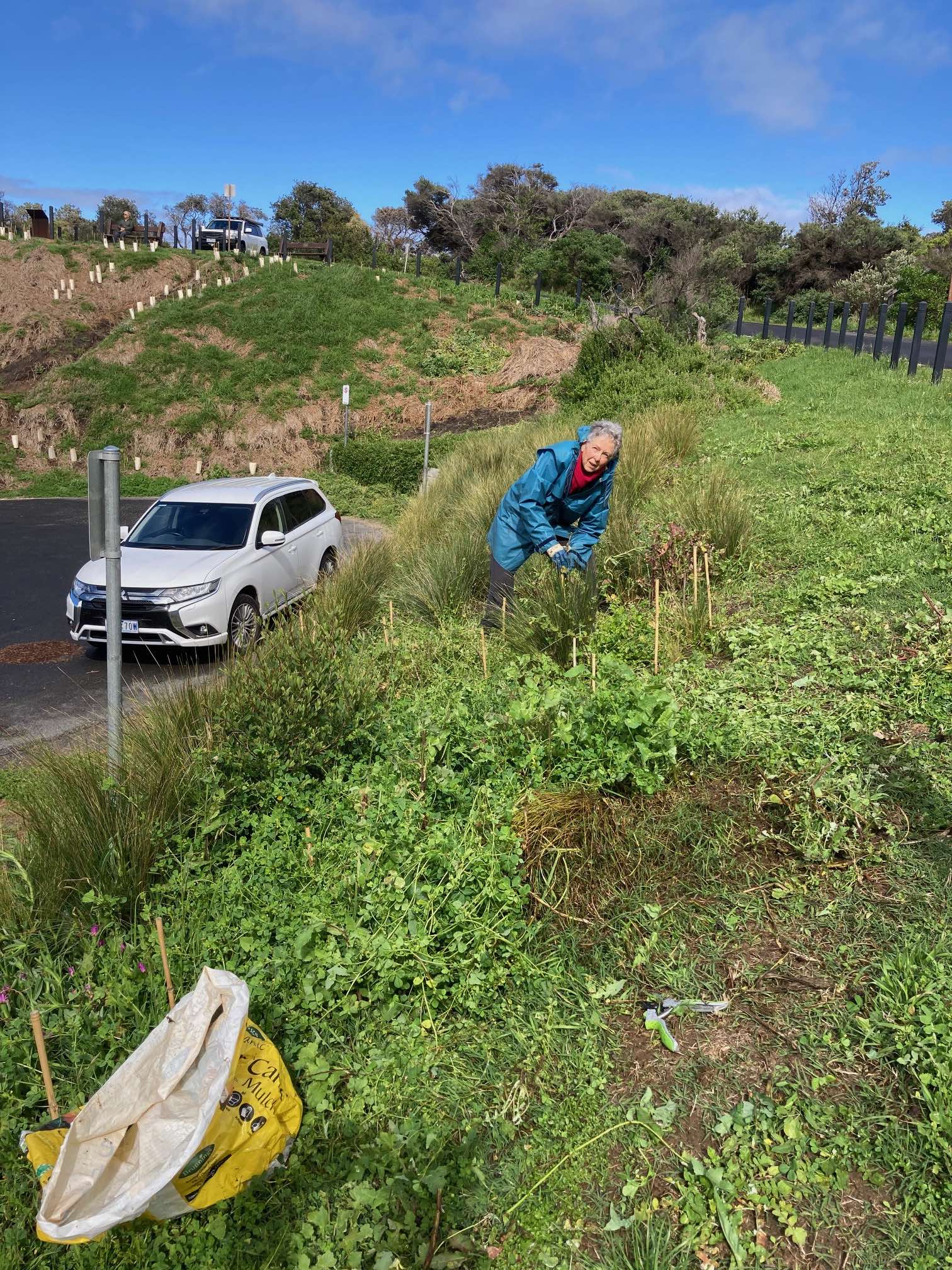
Report by:
Pete Muskens
On a day where the conditions could be described as less than ideal, six hardy volunteers engaged in weeding and planting on the First Surf Beach steps embankment. Some further work was undertaken the next day at the boat ramp plantings carried out earlier this year. The six lucky participants enjoyed a light lunch at the Cape Tavern on the Saturday in appreciation of volunteers' efforts during the year.
More...Report by:
Pete Muskens
It was a small turnout (5 people) to do battle with the boneseed in very thickly vegetated conditions. We managed to cut some very mature (3 meters+) specimens. A very enjoyable pea and ham soup lunch was prepared by Leone at the conclusion of our working bee.
More...
Report by:
Pete Muskens
Our working bee was small but effective. We planted 150 plants in an area previously cleared during the last three years of boneseed infestation. Working from east to west, we've cleared about an acre of bonseed and replaced them with indigenous plants. A truly sumptuous lunch was prepared for for us by Leone Thiele who seems to achieve greater gastronomic heights with each working bee lunch.
More...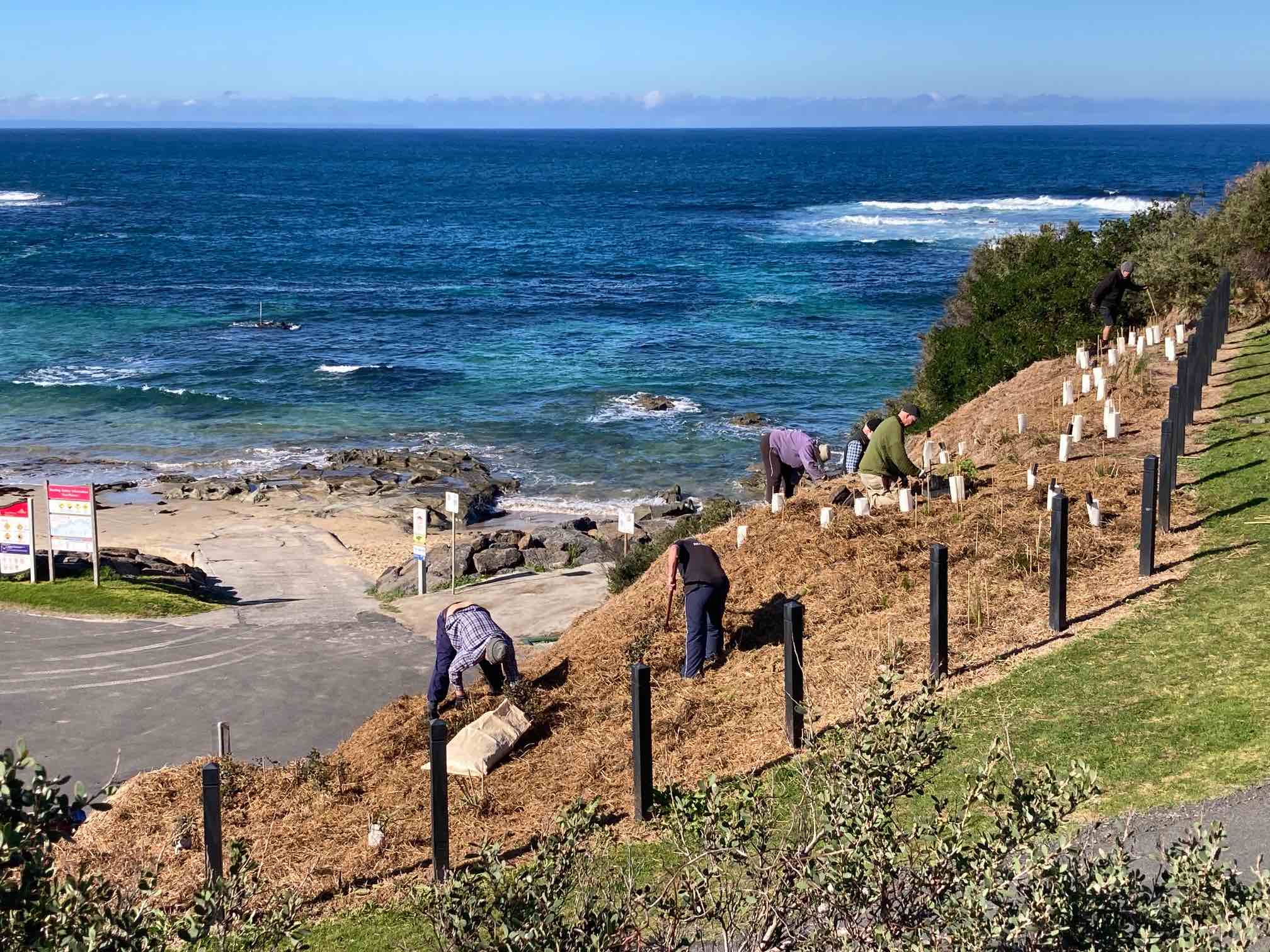
Report by:
Pete Muskens
We planted 200+ seedlings around and on top of and around the base of the slope at the boat ramp. We were gratified to see that much our planting from last year had survived once we cleared the kikuyu around them.
More...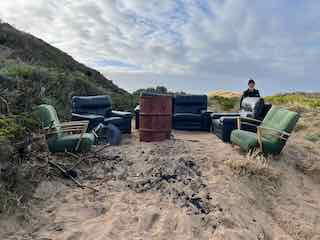
Report by:
Pete Muskens
Five hardy souls walked through the dunes and found where Birdlife had done their working bee in one of the upper dunes. There is still much to remove at this site and will flag it for next year's working bee. A informal lounge suite camp / dump was also found at the end of the path of 2nd surf car park - this will be reported to Parks Vic.
More...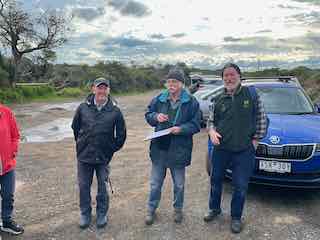
Report by:
Pete Muskens
It was a bit rainy for this working bee but a considerable amount of spurge was removed from the fore and back dunes. About 12 people joined this working bee with half heading west and the other half heading east. This area hadn't been worked on since the early days of lockdown in 2021 so there was a lot of mature growth to be removed. It is hoped that local residents can take care of the residual seed load as it comes up. It was wonderful to see Dave and Jeannie Hartney at this working bee - they have been our hoodie champions! An aluminium tinny was found in the dunes as we were working. About 8 very full garden bags of spurge were disposed of.
More...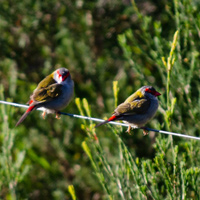
Report by:
Pete Muskens
Ten hardy souls braced the blustery conditions to root out spurge west of F break. The fact that we only managed to fill one garden bag with spurge shows that our efforts over the years have been worth it. It remains a control operation now to ensure that only the residual seed load is eliminated.
More...
Report by:
Pete Muskens
A small contingent (4 from Cape Paterson, 1 from Inverloch, and one from Birdlife) braved the blustery conditions (thankfully no rain) at Twin Reefs and then The Oaks. There was minimal spurge at Twin Reefs (1/2 a large bag) but considerably more at The Oaks. We met the federal grant representatives at the Oaks car park for a sandwich lunch afterwards (provided by South Gippsland Conservation Society).
More...
Report by:
Pete Muskens
Today we had 10 hardy souls braving the cold for our final assault on the tecoma in the Cassia Street reserve. We managed to complete the removal started on the largest infestation (see the before and after photos below) and to start on the removal of a less dense outbreak to the south of where we were working and also we started on the removal of Cape Ivy that is also starting to make inroads into the reserve. We hope to continue our work here next year because the next few months will concentrate on doing some planting preparation and planting at the boat ramp.
More...
Report by:
Pete Muskens
We had a small turnout for today's working bee but this enthusiastic bunch hoed into a very thick patch of tecoma leaving a huge pile for council to pick up in due course.
More...